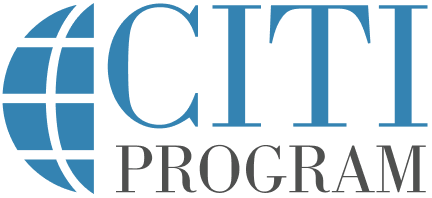Overview
The U.S. Department of Health and Human Services (HHS) Office of Research Integrity (ORI) has issued a revised version of the Public Health Service (PHS) Policies on Research Misconduct (42 CFR Part 93), which will go into effect on January 1, 2026. These changes are the most substantial updates since the regulation was first adopted in 2005 and reflect a broader effort to promote clarity, consistency, and due process in research misconduct proceedings.
To help institutions transition, ORI has released a new Sample Policies and Procedures document. Although nonbinding, this document is designed to assist institutions in meeting regulatory requirements under the revised rule. The updated template aims to help institutions build more transparent, compliant, and effective frameworks for handling allegations of research misconduct.
What Is 42 CFR Part 93?
42 CFR Part 93 sets the federal standard for addressing research misconduct in PHS-supported research. The regulation defines research misconduct as fabrication, falsification, or plagiarism (FFP) in proposing, performing, reviewing, or reporting research. It also outlines:
- The procedural steps for assessing allegations;
- The rights and responsibilities of institutions and individuals;
- The roles of the Research Integrity Officer (RIO), institutional officials, and ORI;
- Timelines and expectations for conducting inquiries and investigations;
- The standards for reporting findings and preserving records.
This regulation, initially issued in 2005, has been central to ensuring the integrity of federally funded biomedical and behavioral research.
Why Are These Changes Happening Now?
Since its implementation, the research landscape has evolved. With increasing collaboration, data-sharing, and digitization, institutions now face more complex misconduct investigations. Additionally, past feedback from the research community revealed that the 2005 guidance left some ambiguity in how to apply the regulations, especially for smaller institutions or those with limited prior experience.
The revised 2024 version of 42 CFR Part 93, slated to take effect in 2026, addresses these gaps by:
- Expanding and clarifying key definitions;
- Extending allowable timelines for procedural steps;
- Strengthening confidentiality and retaliation protections;
- Formalizing expectations for documentation, admissions, and multi-institution coordination.
The overarching goal is to improve the process of responding to misconduct allegations by bringing more structure, clarity, and equity.
What’s New in the Current Sample Policies and Procedures Document
- Clarity and Tone – Much more readable and structured for practical use. Uses plain language and avoids excessive regulatory jargon. Optional sections are minimized and framed more clearly.
- Document Organization – Reorganized into clear sections.
- Expanded Definitions – Provides over 25 clear, well-defined terms, including “administrative record,” “intentionally,” “recklessly,” “institutional record,” and nuanced takes on “good faith” and “plagiarism” (now explicitly excludes self-plagiarism and authorship disputes).
- Timelines and Process Requirements – Inquiry = 90 days, Investigation = 180 days. These timelines align with modern case complexity and allow more realistic procedural windows.
- Sequestration and Evidence Handling – A more rigorous, proactive approach, requiring sequestration as soon as possible upon credible allegations and mandating an inventory of what was sequestered and when, with clear references to chain-of-custody expectations.
- Respondent and Complainant Rights – Stronger protections and clearer roles.
- Emphasis on Recordkeeping – Expands on expectations. Institutions must create and maintain an institutional record with indexes of all evidence reviewed, documentation of decisions not to investigate, descriptions of sequestered but unused evidence, and all transcripts, communications, and ORI notifications.
- Provides Structured Guidance for Multi-Respondent and Multi-Institution Cases
- Handling Respondent Admissions – Requires a written, signed admission detailing what misconduct occurred, how it was committed (e.g., knowingly, intentionally), and how it diverged from accepted practice. Institutions must notify ORI and receive approval before closing the case.
Institutional Responsibilities Under the New Guidance
The revised guidance underscores critical responsibilities for institutions receiving PHS funding. Institutions must:
- Maintain a publicly accessible policy consistent with 42 CFR Part 93;
- Provide safeguards for both complainants and respondents against retaliation;
- Ensure secure sequestration and preservation of research records;
- Appoint impartial committees or officials with relevant expertise to handle allegations;
- Document every stage of the misconduct proceeding in an organized institutional record;
- Notify ORI at specific intervals, especially when investigations are warranted or closed via respondent admissions.
Institutions are also expected to manage conflicts of interest at all levels of the misconduct process and submit investigation records to ORI, including transcripts, sequestered materials, final reports, and any appeals.
Explore the 2025 Sample Policies and Procedures for Addressing Allegations of Research Misconduct.





